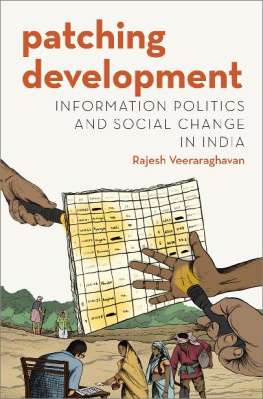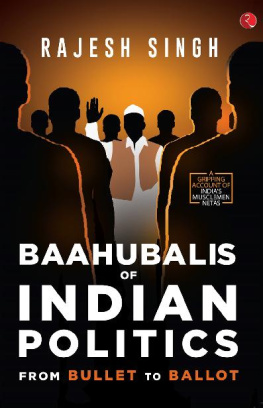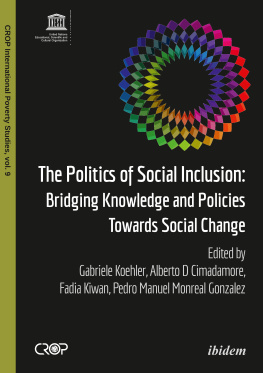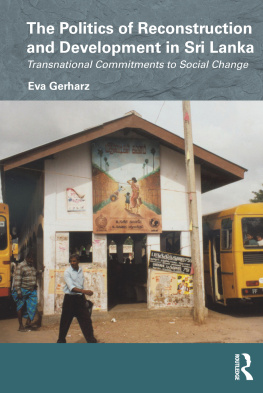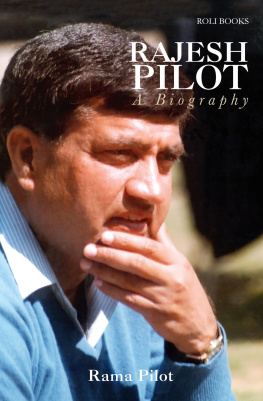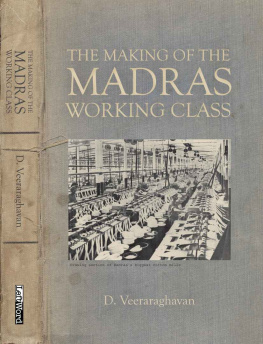Patching Development
MODERN SOUTH ASIA
Ashutosh Varshney, Series Editor
Pradeep Chhibber, Associate Series Editor
Editorial Board
Kaushik Basu (Cornell University)
Sarah Besky (Cornell University)
Jennifer Bussell (University of California, Berkeley)
Veena Das (Johns Hopkins University)
Patrick Heller (Brown University)
Niraja Gopal Jayal (Jawaharlal Nehru University)
Devesh Kapur (Johns Hopkins University)
Atul Kohli (Princeton University)
Pratap Bhanu Mehta (Ashoka University)
Shandana Khan Mohmand (University of Sussex)
Ashley Tellis (Carnegie Endowment for International Peace)
Steven Wilkinson (Yale University)
The Other One Percent
Sanjoy Chakravorty, Devesh Kapur, and Nirvikar Singh
Social Justice through Inclusion
Francesca R. Jensenius
Dispossession without Development
Michael Levien
The Man Who Remade India
Vinay Sitapati
Business and Politics in India
Edited by Christophe Jaffrelot, Atul Kohli, and Kanta Murali
Clients and Constituents
Jennifer Bussell
Gambling with Violence
Yelena Biberman
Mobilizing the Marginalized
Amit Ahuja
The Absent Dialogue
Anit Mukherjee
When Nehru Looked East
Francine Frankel
Capable Women, Incapable States
Poulami Roychowdhury
Farewell to Arms
Rumela Sen
Negotiating Democracy and Religious Pluralism
Karen Barkey, Sudipta Kaviraj, and Vatsal Naresh
Cultivating Democracy
Mukulika Banerjee
Patching Development
Rajesh Veeraraghavan
Patching Development
Information Politics and Social Change in India
RAJESH VEERARAGHAVAN
Oxford University Press is a department of the University of Oxford. It furthers the Universitys objective of excellence in research, scholarship, and education by publishing worldwide. Oxford is a registered trade mark of Oxford University Press in the UK and certain other countries.
Published in the United States of America by Oxford University Press
198 Madison Avenue, New York, NY 10016, United States of America.
Oxford University Press 2022
All rights reserved. No part of this publication may be reproduced, stored in a retrieval system, or transmitted, in any form or by any means, without the prior permission in writing of Oxford University Press, or as expressly permitted by law, by license, or under terms agreed with the appropriate reproduction rights organization. Inquiries concerning reproduction outside the scope of the above should be sent to the Rights Department, Oxford University Press, at the address above.
You must not circulate this work in any other form and you must impose this same condition on any acquirer.
Library of Congress Cataloging-in-Publication Data
Names: Veeraraghavan, Rajesh, author.
Title: Patching development : information politics and
social change in India / Rajesh Veeraraghavan.
Description: New York, NY : Oxford University Press, [2022] |
Series: Modern South Asia | Includes bibliographical references and index.
Identifiers: LCCN 2021034890 (print) | LCCN 2021034891 (ebook) |
ISBN 9780197567821 (paperback) | ISBN 9780197567814 (hardback) |
ISBN 9780197567845 (epub)
Subjects: LCSH: National Rural Employment Guarantee Scheme
(India)Appropriations and expenditures. | Rural
poorEmploymentIndia. | Social accountingIndia.
Classification: LCC HD5710.85.I4 V44 2022 (print) | LCC HD5710.85.I4
(ebook) | DDC 331.12/0420954dc23
LC record available at https://lccn.loc.gov/2021034890
LC ebook record available at https://lccn.loc.gov/2021034891
DOI: 10.1093/oso/9780197567814.001.0001
For Vidhya
Contents
Many people have contributed to the life of this book. I am grateful to all of you and for this opportunity to express my indebtedness and appreciation.
I want to thank the NREGA workers (in Andhra Pradesh and Bihar), government officials, and activists for their generosity in making the book possible. Unfortunately, I am not able to name all of them, as I am committed to protecting their identity. My deepest gratitude is to Raj Kumar, who traveled with me for part of my fieldwork. He served not just as translator, but also as a boon companion who got me (and himself) in and out of trouble during my fieldwork! I want to thank Prakashgaru and his family for hosting me and particularly for taking care of me when I was seriously ill during fieldwork. Thank you Pedamma for letting me stay at your house. I want to thank Sudhesh and his parents for hosting me for a part of the fieldwork. I want to thank my aunt and uncle in Hyderabad for hosting me while I was there in the city. I also want to thank Sowmya, Kavitha, and Hiran for making my Hyderabad stints pleasant. And special thanks to all those who let me intrude in your lives without anything to offer in return.
My interest in development was a direct result of my volunteer work through AID (Association for Indias Development). While there are many great friends and activists who helped sensitize me to issues of the marginalized in India, I want to single out Balaji Sampath, Michael Mazgaonkar, Swati Desai, Anand Mazgaonkar, Ravi Kuchimanchi, Aravinda Pillalamarri, Kiran Kumar Vissa, Nityanand Jayaraman, Leo Saldanha, and Prashant Jawalikar, whose work, activism, and friendship has had a deep impact on me over the last twenty-plus years. I thank Kentaro Toyama for being my mentor at Microsoft Research India, encouraging me to pursue a PhD, and for continuing to support throughout my career. I also want to thank Eric Brewer, whose research talk introduced me to the field of information and communication for technology and development. My first taste for ethnography came from Balaji Parthasarthy of IIIT Bangalore and Ken Keniston from MIT, who welcomed me into their summer research group to study the effect of information and communication technology projects in development. I want to thank my friends and colleagues at Microsoft Research India and at the Technology for Emerging Markets group in Bangalore, India, who lured me into the life of research, as well as Rikin Gandhi for helping bring forth one of my research projects, Digital Green, to such scale and heights. The Digital Green project showed me the impact that research could have.
The origins of this book project started from hearing about the right to information and the work of Aruna Roy, Nikhil Dey, and Shankar Singh in AID circles and in the media. I was at the School of Information at Berkeley, and their struggle to make information a right resonated with me. An email from activists Ashish Jha and Kamayani Swami, both of whom were AID Saathis and organizers of the agricultural workers union in Arara, Bihar, asking for volunteers to be part of the social audits (which was a result of the RTI act) immediately led me to spend a summer volunteering with them, which ultimately led to my dissertation and this book. I also want to thank the many volunteers who were part of the social audit volunteer team with mein particular, Vibhore Vardhan, for his friendship over the years.

